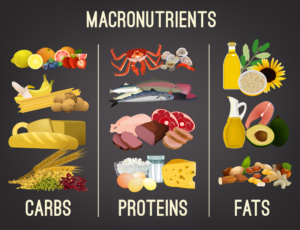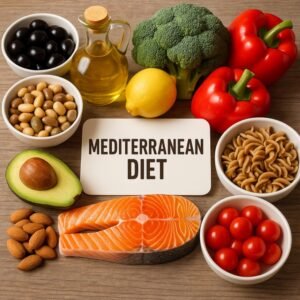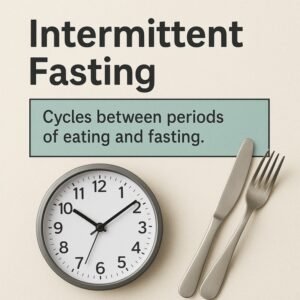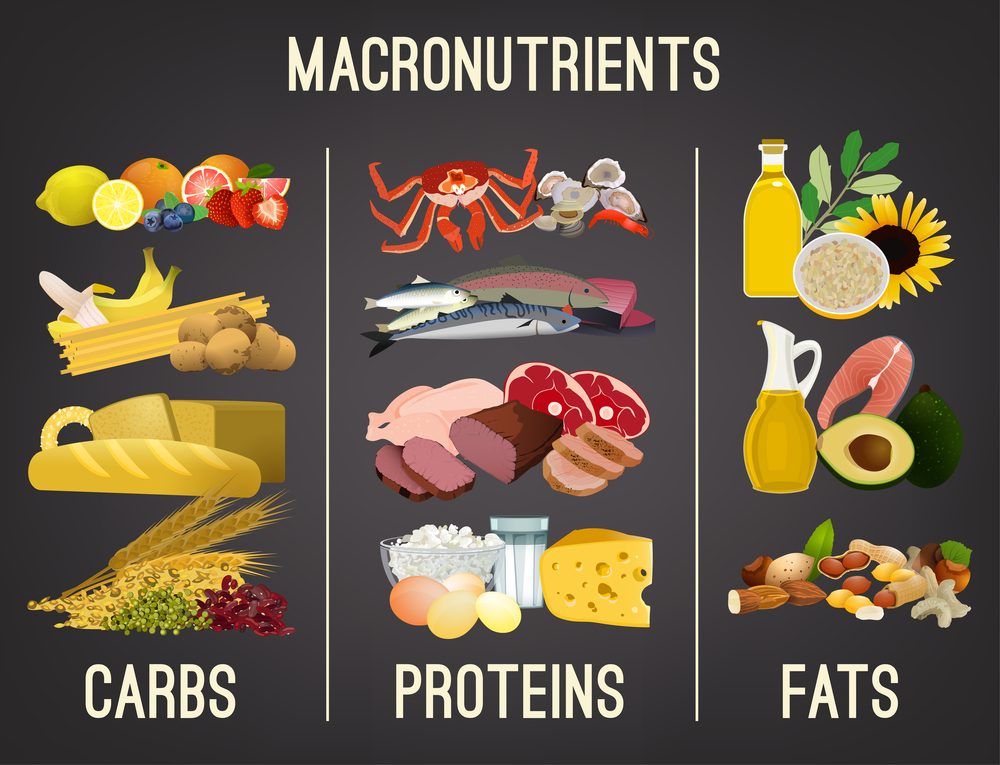Introduction
Embarking on a weight loss journey can often feel overwhelming, with countless diets promising quick fixes. However, achieving lasting results requires a sustainable approach that integrates balanced nutrition, mindful habits, and lifestyle changes.
In this guide, we’ll explore practical strategies to help you develop a Calorie-controlled diet that not only sheds pounds but also promotes overall well-being.

Understanding the Basics of Weight Loss
The Caloric Equation
At its core, weight loss is about creating a caloric deficit—consuming fewer calories than your body expends. However, it’s essential to focus on the quality of calories, not just the quantity. Nutrient-dense foods provide essential vitamins and minerals that support bodily functions and satiety.
Importance of Macronutrients
-
Proteins: Aid in muscle repair and growth, and increase satiety.
-
Carbohydrates: Provide energy; opt for complex carbs like whole grains.
-
Fats: Essential for hormone production and nutrient absorption; choose healthy fats like avocados and nuts.

Crafting a Sustainable Weight Loss Diets
Emphasize Whole Foods
Incorporate a variety of whole foods into your diet:
-
Fruits and Vegetables: Rich in fiber, vitamins, and antioxidants.
-
Lean Proteins: Such as chicken, fish, tofu, and legumes.
-
Whole Grains: Like brown rice, quinoa, and oats.
-
Healthy Fats: Including olive oil, nuts, and seeds.The Verge
Practice Mindful Eating
Being present during meals helps you recognize hunger and fullness cues, preventing overeating. Avoid distractions like screens, and take time to savor each bite.
Portion Control
Understanding portion sizes can prevent excessive calorie intake. Use measuring cups or visual cues (e.g., a serving of meat is about the size of a deck of cards) to guide portions.
Comparing Popular Weight Loss Diets
| Diet Type | Overview | Pros | Cons |
|---|---|---|---|
| Mediterranean Diet | Focuses on whole foods, healthy fats, and lean proteins. | Heart-healthy, flexible, rich in nutrients. | May require meal planning and preparation. |
| Low-Carb Diet | Reduces carbohydrate intake, emphasizing proteins and fats. | Can lead to quick weight loss, reduces appetite. | May be restrictive, potential nutrient deficiencies. |
| Intermittent Fasting | Cycles between periods of eating and fasting. | Simplifies meal planning, may improve metabolism. | Not suitable for everyone, potential for overeating during eating windows. |
| Plant-Based Diet | Emphasizes fruits, vegetables, legumes, and whole grains. | High in fiber, reduces risk of chronic diseases. | Requires careful planning to meet protein needs. |
Navigating the world of diets can be overwhelming, with numerous options promising various health benefits. This guide delves into three popular dietary approaches—Low-Carb Diets, the Mediterranean Diet, and Intermittent Fasting—to help you understand their principles, benefits, and considerations.
Low-Carb Diets
Principles:
Low-Carb Diets focus on reducing carbohydrate intake, encouraging the body to utilize fat as its primary energy source. By limiting foods like bread, pasta, and sugary snacks, these diets aim to stabilize blood sugar levels and promote fat burning.
Benefits:
-
Weight Loss: Studies indicate that low-carb diets can lead to more significant short-term weight loss compared to low-fat diets.
-
Appetite Control: Reducing carbs may decrease hunger, aiding in calorie reduction.
-
Improved Triglyceride Levels: Lower carbohydrate intake is associated with decreased triglyceride levels, benefiting heart health.
-
Reduced Abdominal Fat: These diets often lead to a greater loss of visceral fat, which is linked to various health issues.
Considerations:
While effective for many, low-carb diets may not be suitable for everyone. Potential side effects include fatigue, nutrient deficiencies, and digestive issues. It’s essential to consult with a healthcare professional before making significant dietary changes.Incorporating Lifestyle Changes
Mediterranean Diet
Key Components:
The Mediterranean Diet emphasizes whole, minimally processed foods:Help Guide+1www.heart.org+1
-
Fruits and Vegetables: Rich in vitamins, minerals, and fiber.
-
Whole Grains: Such as brown rice, quinoa, and whole wheat bread.
-
Legumes and Nuts: Excellent sources of plant-based protein and healthy fats.
-
Healthy Fats: Primarily from olive oil, promoting heart health.
-
Lean Proteins: Including fish and poultry.
-
Moderate Dairy and Wine Consumption: In moderation, these can be part of a balanced diet.

Health Benefits:
-
Heart Health: Linked to reduced risk of cardiovascular diseases.
-
Weight Management: Supports healthy weight loss and maintenance.
-
Reduced Inflammation: May lower the risk of chronic diseases.
-
Cognitive Function: Associated with a decreased risk of cognitive decline.Mass General Brigham+26EatingWell+26BioMed Central+26Help Guide+1www.heart.org+1
Considerations:
The Mediterranean Diet is flexible and sustainable, making it suitable for long-term adherence. However, it may require meal planning and preparation to ensure balanced nutrient intake.
Intermittent Fasting
Methods:
Intermittent Fasting (IF) involves cycling between periods of eating and fasting. Common approaches include:
-
16/8 Method: Fasting for 16 hours and eating during an 8-hour window.
-
5:2 Diet: Eating normally for five days and restricting calorie intake on two non-consecutive days.
-
Alternate-Day Fasting: Alternating between days of normal eating and fasting.

Effectiveness:
-
Weight Loss: IF can lead to weight loss by reducing calorie intake and improving metabolic health.
-
Blood Sugar Control: May help lower blood sugar levels and improve insulin sensitivity.
-
Heart Health: Potential to reduce blood pressure and cholesterol levels.Medical News Today+5The Times of India+5Healthline+5PMC+1BioMed Central+1
Considerations:
Intermittent Fasting isn’t suitable for everyone. Individuals with certain health conditions, such as diabetes or eating disorders, should consult healthcare professionals before starting. Additionally, it’s crucial to maintain balanced nutrition during eating periods to avoid nutrient deficiencies.
Regular Physical Activity
Combine aerobic exercises (like walking or cycling) with strength training to boost metabolism and preserve muscle mass during weight loss.
Adequate Sleep
Aim for 7-9 hours of quality sleep per night. Poor sleep can disrupt hunger hormones, leading to increased appetite.Stellar+1Reddit+1
Stress Management
Chronic stress can lead to emotional eating. Incorporate stress-reducing activities such as meditation, yoga, or hobbies you enjoy.
Practical Tips for Success
-
Meal Planning: Prepare meals in advance to avoid unhealthy food choices.
-
Stay Hydrated: Drink plenty of water throughout the day.
-
Set Realistic Goals: Aim for gradual weight loss (1-2 pounds per week) for sustainable results.
-
Seek Support: Join a community or consult a nutritionist for guidance and accountability.
Conclusion
Achieving and maintaining weight loss is a journey that involves more than just diet changes. By focusing on balanced nutrition, mindful eating, and healthy lifestyle habits, you can create a sustainable weight loss plan that promotes long-term health and well-being.
Call to Action
Ready to take the first step toward a healthier you? Begin by evaluating your current eating habits and identifying areas for improvement. Share your goals with friends or family for added support, and consider consulting a healthcare professional for personalized advice. Your journey to a sustainable weight loss diet starts today!
Note: This blog post is for informational purposes only and does not constitute medical advice. Always consult with a healthcare provider before making significant changes to your diet or exercise routine.


this is helpfull